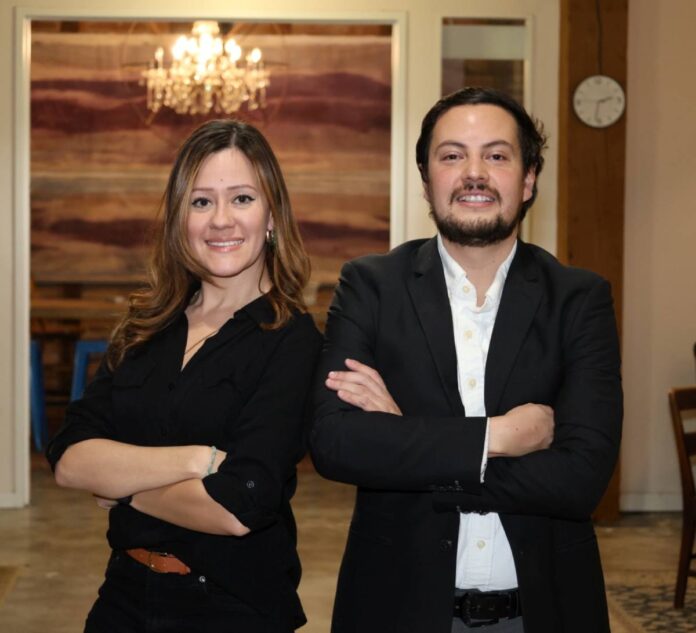Interview with Finanzo’s co-founder, Maria Kamilla Gonzalez
As co-founder of Finanzo, how have you shaped the company’s mission to go beyond financial education and into emotional healing, community-building, and systemic empowerment?
As co-founders of Finanzo, the mission for my partner, Juan Pablo, and I, has always gone beyond spreadsheets and savings goals. From the start, we weren’t just teaching people how to budget or invest—we were helping them heal.
As an immigrant woman and investment psychologist, I’ve lived the emotional weight that money carries. That’s why Finanzo integrates emotional healing, community-building, and systemic empowerment. It’s about rewriting money stories shaped by fear and shame, and replacing them with clarity, dignity, and possibility.
2. In a space often dominated by male voices, how have you used your lived experience to design financial tools and coaching that speak directly to the challenges women face—particularly in immigrant and underserved communities?
We designed Finanzo’s coaching and platform to speak directly to the real-world challenges that women—especially immigrants—face: invisible labor, caregiving burdens, financial dependence, and self-doubt.
In doing so, I created what I wished existed when I was starting out: clear, culturally relevant, judgment-free support that speaks our language—both literally and emotionally.
3. What are some key decisions or program features at Finanzo that were directly influenced by María’s vision for gender equity in financial literacy and access?
Some of our most important decisions were shaped by that vision. We introduced our “Money Story” module before any technical content so people could start by understanding how culture, family, and gender shaped their beliefs.
We made our content bilingual and included examples like remittances or buying property in one’s home country. We also added community circles so that no one feels alone on this journey.
4. Finanzo works with thousands of people who have never seen themselves as “investors.” How do you build trust and lower the barrier to entry for communities historically excluded from financial systems?
When we meet people at Finanzo, many say, “I’m not an investor.” They’ve internalized the message that wealth isn’t for them. So we focus first on trust. We use warm, clear language and relatable examples, and we validate their fears.
We don’t expect people to already know what an RRSP or ETF is—we teach from the ground up, always with empathy. That’s how we lower the barrier to entry and make this world accessible to everyone.
5. What role does culturally relevant design—language, examples, emotional context—play in closing the gender and class gaps in financial participation?
Cultural relevance is essential. When people hear familiar terms, see themselves in stories, and learn in their own language, something shifts. They stop seeing finance as foreign and start seeing it as theirs. We once renamed a dense lesson on asset allocation to “Your Money, Your Map,” swapped technical jargon for everyday language, and shared immigrant success stories. Completion rates rose by 28%, and forum activity nearly doubled.
6. How do you measure success beyond metrics like ROI or account creation—especially when working with people who are transforming deeply held beliefs about money and self-worth?
We look at confidence and behaviour. We ask: Do you feel more in control? Do you trust yourself with money? When someone goes from hiding their savings under a mattress to investing in ETFs—and says, “I’m not a millionaire yet, but I believe I can be free”—that’s success. We also track retention, referrals, and shifts like moving from a single income to multiple income streams.
7. What’s your take on the role fintech platforms should play in social justice—and how does Finanzo navigate the tension between scale and intimacy when serving vulnerable populations?
Fintech has a responsibility to participate in social justice. That means building systems that include and empower. At Finanzo, we blend scalable online tools with live coaching and WhatsApp groups. This keeps our growth human-centered. Our aim is to positively impact people’s lives, and we are committed to doing just that.


